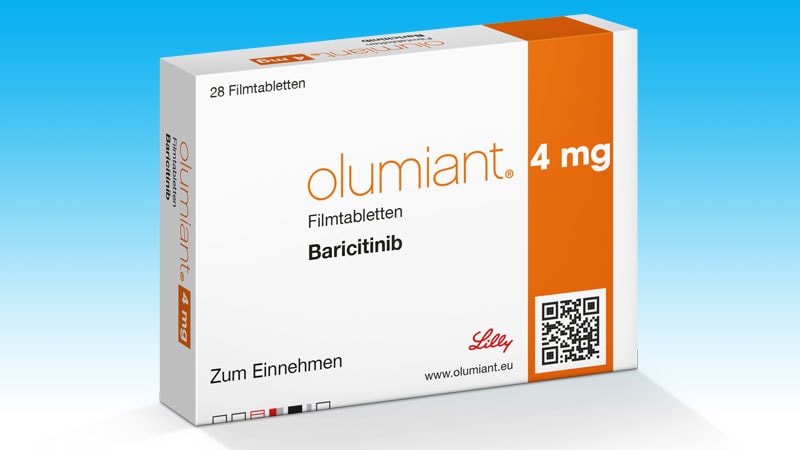TOPLINE:
Uptitration to 4 mg baricitinib may increase responses in patients with alopecia areata (AA) who do not respond to the 2 mg dose over 1 year.
METHODOLOGY:
-
Patients with alopecia areata (AA) treated with 4 mg of the oral JAK1 and JAK2 inhibitor baricitinib (Olumiant), approved for treating adults with severe AA, have experienced higher response rates than with baricitinib 2 mg at weeks 36 and 52.
-
To test the benefit of uptitration for 24 weeks in patients with AA who had not responded to baricitinib 2 mg after 52 weeks, researchers conducted a pooled analysis of the ongoing phase 3 randomized clinical trials BRAVE-AA1 and BRAVE-AA2, which reported long-term extension data out to 76 weeks.
-
They analyzed the proportions of patients achieving a Severity of Alopecia Tool (SALT) score of 20 or lower (indicating scalp hair regrowth) and clinician-reported outcomes for eyebrow hair loss and eyelash hair loss scores of 0 or 1 with 2-point or higher improvements from baseline through week 76.
TAKEAWAY:
-
At week 52, 212 (62.4%) of 340 patients in the studies treated with baricitinib 2 mg were nonresponders with a SALT score higher than 20 and were uptitrated to baricitinib 4 mg.
-
At week 76, 55 (25.9%) of those 212 patients uptitrated to 4 mg had achieved a SALT score of 20 or lower.
-
At week 76, response rates for clinician-reported outcome scores of 0 or 1 (full coverage or minimal gaps) increased from 19.3% to 37.9% for eyebrows and from 24.1% to 40.9% for eyelashes among those uptitrated to 4 mg.
IN PRACTICE:
“In routine clinical practice, physicians may consider timepoints for dose escalation from 2 mg to 4 mg, based on the patient’s baseline disease characteristics, response status, and goals,” the researchers write.
SOURCE:
Justin M. Ko, MD, MBA, of the department of dermatology at Stanford University, led the research, published August 9 in JAMA Dermatology.
LIMITATIONS:
The criteria and timing for dose uptitration were prespecified in the protocols and not individualized based on the patient’s response to treatment.
DISCLOSURES:
Ko reported other support from Eli Lilly and Company for clinical trial conduct and consulting regarding study design during the conduct of the study. He and several coauthors have received grants from several pharmaceutical companies, including Eli Lilly.
For more news, follow Medscape on Facebook, Twitter, Instagram, and YouTube.
Source: Read Full Article
